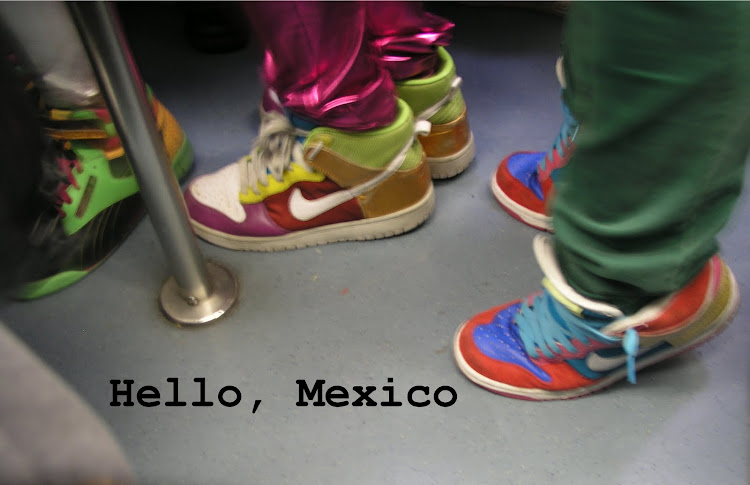At this moment, U.S. President-elect Barack Obama and Mexican President Felipe Calderon are
meeting in Mexico City. While this is the first time a president-elect has met with a Mexican president pre-inauguration day, I hope this meeting is more than just symbolic.
Mexico is quickly on its way to becoming a severely injured state – and a civil war breaking out isn’t difficult to imagine. Since Calderon took office in December 2006, more than 8,000 Mexicans have died as a result of drug violence, many innocents, most of those taking place in the north (in Ciudad Juarez, more than
1,600 were killed in 2008 alone), but the whole country seems to be infected, as drug traffickers, under pressure from increased military presence, fight for increasingly constricted trafficking routes to the U.S.
Just last week, a TV station in Monterrey was
attacked with grenades, and Mexico’s interior secretary and head of the drug war (No. 2 man after the president) died in a plane crash (it may or may not have been an accident). Mexico is among the worst countries to be a journalist, after Iraq and Russia.
A report from the United States Joint Forces Command, which monitors other countries for possible, unexpected and sudden problems, recently released considers Mexico and Pakistan as states that are in risk of collapse if they don’t take immediate action.
“Such states, it says, usually pose chronic, long-term problems that can be managed over time,” the article says.
“But the little-studied phenomenon of "rapid collapse," according to the study, "usually comes as a surprise, has a rapid onset, and poses acute problems."
”Kidnappings have become a routine part of Mexican daily life. Common crime is widespread. Pervasive corruption has hollowed out the state,” the article says.
While Pakistan is more of a risk, the U.S. has a deeply vested interest in Mexico. It’s its third-largest trading partner after Canada and China and third-largest oil importer.
It’s a complex problem that spans across many levels – from corrupt top government officials to police officers to drug dealers, but the U.S. needs to take action, and not through military force.
One of the things that both sides of the border need to do is
legalize marijuana, sell it, regulate it and tax it. That would remove pressure on the military, drug enforcement officials and police, reduce the number of innocent people killed, and allow officials to focus on more serious problems, saving millions of dollars.
Hopefully, Obama and Calderon’s meeting today is fruitful and launches what needs to be quick, efficient action. Mexico’s – and the US´ -- future depends on their cooperation.




